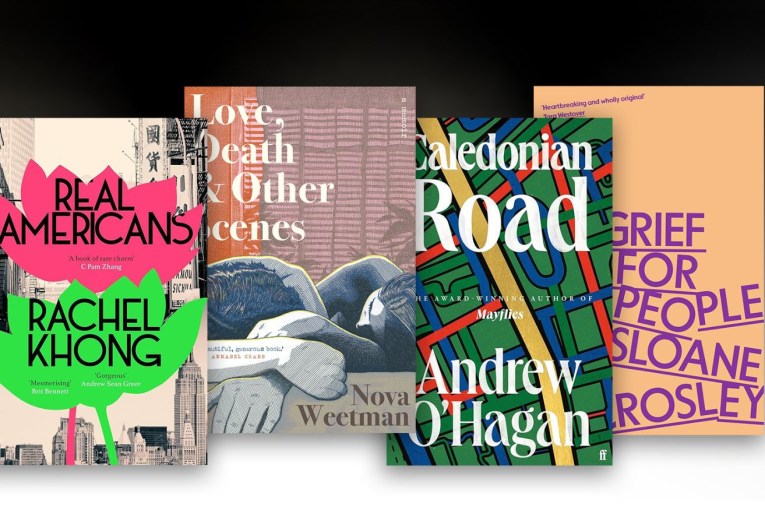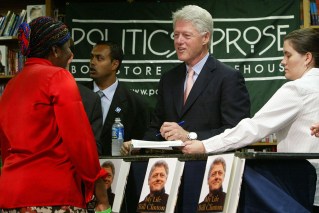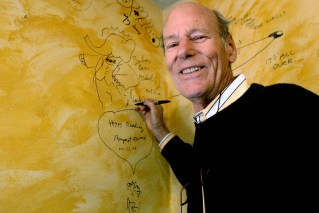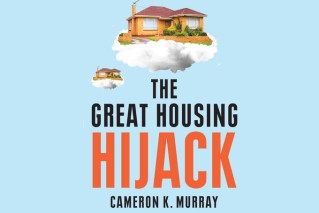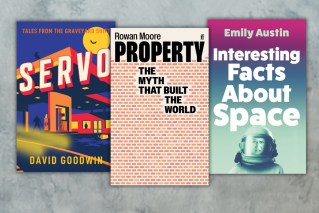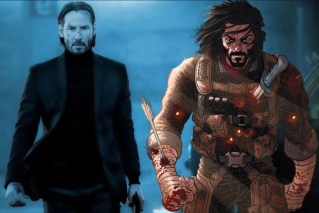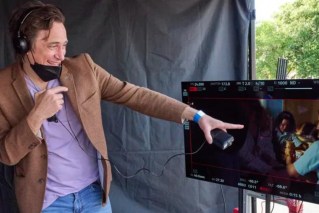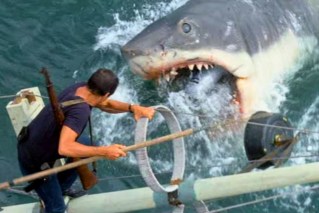BOOK EXTRACT: ‘Peculiar’ Mr Rudd

The Fights of My Life by Greg Combet (with Mark Davis)
Melbourne University Publishing
In stores now
Kim Beazley had returned to the ALP leadership after Mark Latham resigned in 2005. During 2006 Labor had been consistently, although not decisively, ahead of the Coalition in the opinion polls. Yet elements of the party were agitating for a change to Kevin Rudd, arguing that Beazley could not take Labor to victory. The alliances that had backed Latham against Beazley in 2003 were active. Rudd and Gillard were auditioning. Not to put too fine a point on it, all this gave me the shits. The union movement was spending a fortune trying to get Labor elected, but our colleagues in Canberra seemed headed for another outbreak of ill-discipline. I met Julia to raise my concerns. I thought Kim Beazley was our best chance to win, on the back of the campaign against WorkChoices and the longevity of the Howard Government. She listened, but I could see that decisions had been taken, commitments made and alliances forged.
· Gillard: Yes, I offered Combet my job
Melbourne University Press is giving The New Daily readers 20 per cent off The Fights of My Life. Just visit MUP’s e-store and enter the promotional code NDGC20.
My position supporting Beazley rested on two things: my confidence in him, and our political research. Kim is very deeply a Labor person, imbued with the values described by Chifley as the ‘light on the hill’. He has a sincere empathy with working people, understands the role of unions in society, and appreciates how the economy really works. We had become friends over the course of all the dark years since Labor’s defeat in 1996—he as the leader of the parliamentary party, and me in my role as the leader of the industrial wing of the labour movement. I believed he could defeat Howard this time and our research strongly supported this. It was evident that there had been a fundamental turn against the Howard Government in community sentiment. But dogs were barking inside the Labor Party.
I got word that Kim Carr, a senior Labor frontbencher, was visiting Victorian union officials with polling designed to justify the political execution of Beazley and his replacement with Rudd. This is the standard tactic in the lead-up to a leadership spill, and it is usually backed up by unattributed criticisms provided to journalists on a ‘background’ basis. My frustration boiled over after one newspaper story appeared full of comments from unnamed ‘Labor sources’, which was more of the white-anting and destabilisation that seemed to have become normal conduct in some quarters of the ALP. Clearly the campaign was on to kill Beazley.
I was embarrassed by my loss of temper. I had really let off steam because I was so sick of the undermining of leaders inside federal Labor over many years.

Glory days: Combet (far right) with Brian Boyd of the Trades Hall, Martin Kingham of the CFMEU and current Opposition Leader Bill Shorten at the ACTU Melbourne stop-work rally in January 2005. Photo: Getty
I was spending the weekend in the Clare Valley in South Australia with (my partner) Petra before I was to give the Hawke Lecture at the University of South Australia in Adelaide the following Monday. But I was so incensed I picked up the phone to Carr and let fly in a most intemperate manner. Regrettably I was extremely unprofessional, but I got my point across: ‘The union movement is spending tens of millions of dollars to protect workers and get rid of John Howard. Do you think about that at all before you engage in destabilisation?’ I was embarrassed by my loss of temper. I had really let off steam because I was so sick of the undermining of leaders inside federal Labor over many years.
It was a Sunday. The first thing he said as he walked into my office was,‘You just think I’m a Christian c**t, don’t you?’
Word must have quickly been passed on to Rudd because within a few days he came to Melbourne for a meeting. It was a Sunday. The first thing he said as he walked into my office was,‘You just think I’m a Christian c**t, don’t you?’ I thought it was a peculiar remark, but I guess Carr had told him how ropable I was. I’d run into Kevin a couple of times before, but this was our first direct meeting.
‘I don’t care if you’re a Christian or not; it is irrelevant,’ I responded. I explained to him why I was so angry, what the unions were doing and how much money we were spending, and I told him that I thought Kim would win the election. Rudd was quite open that he and Gillard were heading towards a leadership challenge just days before our next round of Your Rights at Work rallies. I set out my concern that the ALP was jeopardising our campaign by looking like a shemozzle.
‘Sort out your issues, but don’t mess up our campaign,’ I told him, ‘especially as we are just about to mobilise hundreds of thousands of people in rallies to oppose Howard.’ I supported Beazley but did not interfere in the caucus deliberations—my practice as ACTU secretary had been never to pressure MPs over Labor leadership matters.
A couple of days later the caucus elected Rudd as leader and Gillard as his deputy … I am convinced that Beazley would have won the 2007 election.
 In the end the challenge went ahead just after the rallies, which attracted more than 250,000 people. Beazley spoke at the rally at the Melbourne Cricket Ground on 30 November. I think he got a real kick out of sharing the stage with Jimmy Barnes, who belted out ‘Working Class Man’. The next day Rudd informed him he would be challenging. A couple of days later the caucus elected Rudd as leader and Gillard as his deputy. It was a rough time for Kim. After getting back to his office following the caucus meeting, he received the news that his younger brother had died. In a press conference, he handled himself with dignity and loyalty to Labor.
In the end the challenge went ahead just after the rallies, which attracted more than 250,000 people. Beazley spoke at the rally at the Melbourne Cricket Ground on 30 November. I think he got a real kick out of sharing the stage with Jimmy Barnes, who belted out ‘Working Class Man’. The next day Rudd informed him he would be challenging. A couple of days later the caucus elected Rudd as leader and Gillard as his deputy. It was a rough time for Kim. After getting back to his office following the caucus meeting, he received the news that his younger brother had died. In a press conference, he handled himself with dignity and loyalty to Labor.
I am convinced that Beazley would have won the 2007 election. If this had occurred, there would have been a new Labor Government with an experienced and stable leader at the helm, and recent political history would have unfolded in a very different direction. I still believe it was a mistake for the Labor caucus to replace Beazley in 2006 and I reckon subsequent events support that conclusion. But Rudd took over and politics entered a new phase. He did finally bring discipline to Labor, pulling the party together as it went into the election year. Already in front in the polls, Labor’s position improved by several points under the new leader and the Howard Government went into 2007 in trouble.
At the start of 2007 I began thinking seriously about going into parliament. Beazley had encouraged me during 2005 and 2006, and suggested he would put me straight into Cabinet. Now he was out of the leadership, but the idea he had planted in my mind was still germinating. Petra and I talked it over. I agonised over the right thing to do. Should I stay at the ACTU and see the campaign through? Or should I go into politics? On the one hand, I was working so hard to get Labor elected and if we won I felt I wanted to be part of it, part of a Labor Government that would change the country for the better. On the other hand, I had tremendous loyalty to the ACTU and the people I worked with there. I was also mindful of the upheaval for my family that a political career would entail.
My friend Tony Maher from the miners’ union came to Melbourne to talk it over with me. What’s more, Tony had a specific suggestion, saying the sitting Labor member in the Newcastle-based seat of Charlton, Kelly Hoare, had lost all support. She was factionally non-aligned, and the NSW factions had done a deal for a left candidate to be preselected in Charlton. It was a coalmining area, a solid working-class seat, and the miners’ union would support me. In coming months the NSW Labor Left’s Anthony Albanese approached me with the same suggestion. Senator John Faulkner, someone whose judgement I respected enormously, was also talking to me a lot about it, as was the national secretary of the ALP, Tim Gartrell.
Eventually I decided to run for Charlton. On 4 May 2007, George Wright, Petra and I flew to Newcastle on an early Jetstar flight. The plan was to make the announcement at the Cardiff Panthers club in Newcastle, which was in the Charlton electorate, that morning. When I got off the plane, my phone was jammed with messages, including one from Kevin.
I called him back. Howard had announced a partial backdown on WorkChoices, a new ‘Fairness Test’ for individual contracts, and Kevin was agitated about my candidacy being announced on the same day as this. The risk was that I would be seen as the person responding to Howard’s move on the TV news bulletins that night. Even though my team had planned the timing with Rudd’s office, booked a venue, invited local supporters, and alerted the media, and I had informed the sitting member Kelly Hoare, the proposition seemed to be that we should cancel it all and make the announcement some other day, when WorkChoices was not in the news. I thought that was a nonsensical idea. The fact that I was standing was widely known without having been announced, and not proceeding would have ended up a news story itself.
It was obvious that Kevin was not happy about the media ‘optics’ of Labor being associated with a prominent trade union leader.
Politics is an intense and dynamic business, but this was my first experience of the role panic can play in decision-making. It was obvious that Kevin was not happy about the media ‘optics’ of Labor being associated with a prominent trade union leader. That was odd for a party rooted in the union movement and in an environment where industrial relations was a central election issue. I resolved to go ahead with the announcement. In the wash-up, the fuss amounted to nothing.
Labor won the election on 24 November 2007. Rudd was only the third federal Labor leader to win government from opposition in the postwar period, a hugely significant achievement for which he deserves great credit. His determination, campaigning capacity, resilience and hunger for victory were impressive. These are among Rudd’s strongest attributes. The ACTU’s campaign against WorkChoices also played a central part in this outcome.
‘I’d like to have you as a minister but you are going to have to be de-unionised first,’ he said.
Shortly after the election I was staying in a dingy motel room in the Canberra suburb of Forrest after the first meeting of the new Labor caucus when Kevin Rudd called late at night. He was giving me the job of Parliamentary Secretary for Defence Procurement. ‘I’d like to have you as a minister but you are going to have to be de-unionised first,’ he said.
I was more than happy to serve in this position but was taken aback by Kevin’s turn of phrase. ‘De-unionisation’ is a label for employer strategies to deny workers the right to be represented by a union, to drive unions out of workplaces. I’d been prominent in campaigns against de-unionisation; in fact I’d busted a gut doing so. I understood that Kevin wanted to distance Labor from the unions in the public’s eye. His government would not be a traditional Labor government; there would be no partnership with the unions. But after spending my life in the union movement, the idea that I needed to be cleansed of my union past was pretty offensive.The fact was that the unions had spent tens of millions of dollars to support Rudd’s election, and the notion that a Labor prime minister saw the leader of that campaign as a political liability genuinely perplexed me.
Melbourne University Press is giving The New Daily readers 20 per cent off The Fights of My Life. Just visit MUP’s e-store and enter the promotional code NDGC20.
